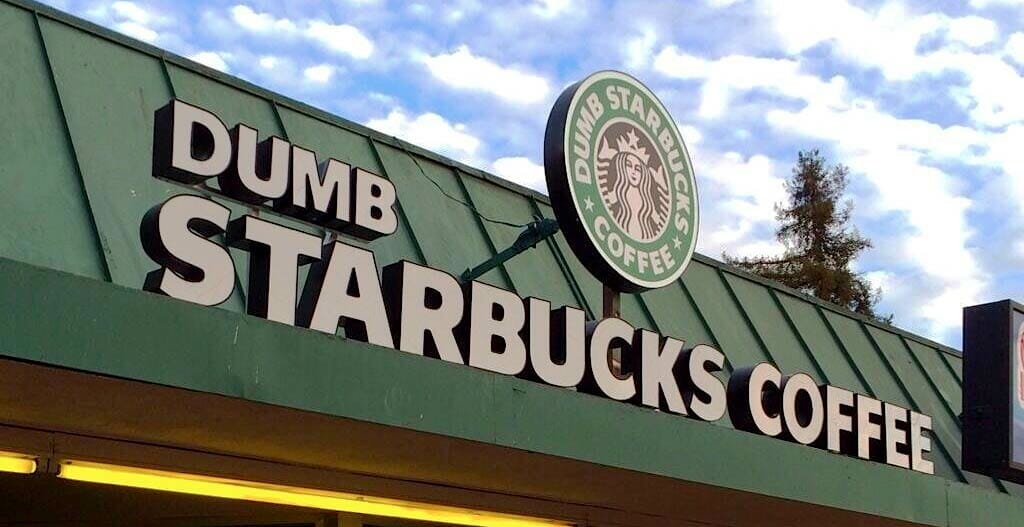This past week in Southern California, a clever storeowner decided to open a coffee shop to compete with Starbucks, calling it “Dumb Starbucks.” While social media sites were amused and people approaching the store were confused of its intent, “Dumb Starbucks” has a lot to teach many of us about branding (and a little about legal trouble).
With such disparity in the size of financial services, what are we to learn if we are a small bank or brokerage, taking on one of the big guys?
I thought it may serve as a nice guide to listen to Malcolm Gladwell’s advice from his latest book, ‘David and Goliath’; “Much of what we consider valuable in our world arises out of these kinds of lopsided conflicts, because the act of facing overwhelming odds produces greatness and beauty.”
You won’t win at someone else’s game. If you are going through a rebranding or just sending a new campaign, we have to think of how to play the game differently.
“A radical and transformative thought goes nowhere without the willingness to challenge convention.” – Gladwell
Mentions on social are not all positive. Sure, traffic was high around the name “Dumb Starbucks” as interested parties all over the country looked to see how this was legal or possible. If you want a viral social strategy, this brand has that going for it. In fact my own post on the subject reached hundreds of retweets.
Dumb Starbucks store. Their legal FAQ is what impressed me. http://t.co/MkrdosOt7x pic.twitter.com/Zhb96WXJ6w
— Ben Pankonin (@benpankonin) February 9, 2014
“Fundamental to our analysis is the assumption that the population, as individuals or groups, behaves “rationally”.” – Gladwell
The Big Boys Hit Back Harder when it’s direct. Starbucks has responded to the store indicating they will be keeping them from taking their name.
“Giants are not what we think they are. The same qualities that appear to give them strength are often the sources of great weakness.” -Gladwell
When we work with our clients to define markets and help build social media programs that work, we realize that you have to think differently. When confronting giants in an industry, you must be able to out-maneuver them and run faster. For marketing to become effective at the local and even regional level, firms need to understand how to adapt quicker.


